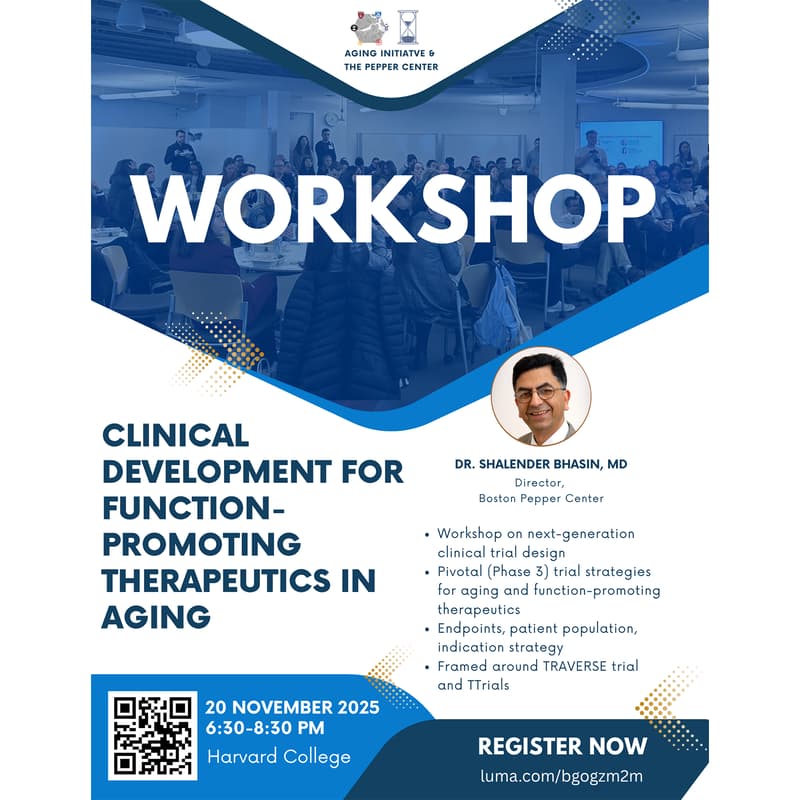

Workshop on Designing Clinical Trials for Age-Related Functional Decline
Please review the following workshop briefing: https://docs.google.com/document/d/1uXAd97ph5qwSPV_A3QrzjawuhmboBkXNQp3tvvFtYBI/edit?usp=sharing
Join the Aging Initiative and the Boston Pepper Center on November 20th at 6:30-8:30pm at Harvard College for a workshop on the future of clinical trial design for new therapeutics addressing key aspects of aging, emphasizing academia-industry collaborations. The event will be led by Dr Bhasin, the author of the TRAVERSE trial and a world-leading expert in clinical trials for function-promoting therapies in older adults. The event will serve to catalyze discussion in designing pivotal trials for new medicines addressing age-related functional decline and is open to clinicians, industry professionals, researchers as well as medical, graduate and undergraduate students. A hands-on workshop will involve discussion around endpoints, eligibility criteria, and regulatory strategy / indications.
Developing therapeutics to address functional decline in aging is highly desirable, but validating their clinical efficacy and attaining regulatory approval requires a Phase 3 pivotal trial. Lifespan-extension trials are cost-prohibitive owing to a low mortality event frequency, requiring large cohorts and potentially decades-long follow-up. Trials addressing multimorbidity (disease incidence, composite hard endpoints) appear to be the way forward; yet, choosing the specific endpoints, patient population and therapeutic indication to demonstrate efficacy and attain regulatory approval remains challenging. Addressing this challenge is a key requirement to enable development of broadly applicable function-promoting therapeutics.
The Boston Pepper Center is the leading group of clinical researchers in Boston conducting translational studies with the goal of developing function-promoting therapies, having performed some of the largest cardiovascular outcome and frailty-related trials. The TRAVERSE trial of testosterone in older adults, led by Pepper Center Director Dr Shalender Bhasin, offers a concrete case study. It incorporates composite measures like cardiovascular outcomes, fractures, diabetes incidence, mental well-being and beyond across over 5,000 patients, serving as a template for a function-promoting therapeutic trial.